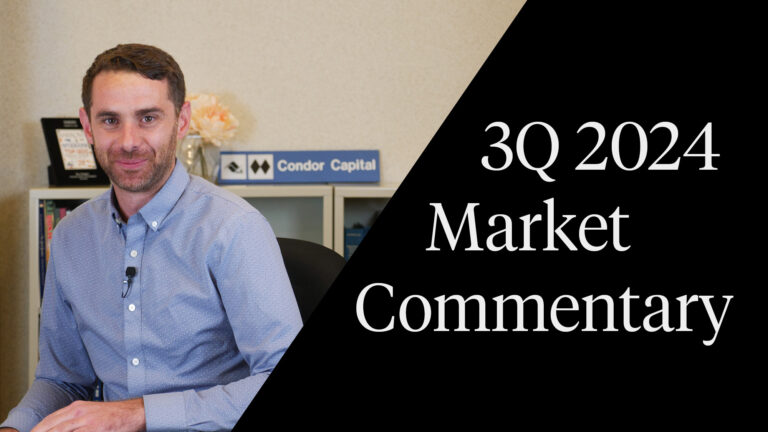The average yield maturity of the holdings in the SPDR Bloomberg High Yield Bond ETF ($JNK) is 7.90%, and iShares iBoxx $ Investment Grade Corporate Bond ETF ($LQD) is 5.09%. After more than a decade of rock bottom rates, bonds again offer attractive yields.
While overall yields in fixed income are high, spreads for riskier bonds have tightened recently, raising the question of whether investors are being sufficiently compensated for owning the debt of higher-risk companies. When compared to the iShares U.S. Treasury Bond ETF ($GOVT), the average yield to maturity is 4.12%. The spread above the near risk-free U.S. Treasury Notes is nearing a long-term low. The ICE Bank of America BBB US Corporate Index Option-Adjusted Spread is only 1.26%, meaning the risk an investor takes above a near risk-free U.S. treasury note is near its all-time low for BBB-rated corporate credit. While the total interest rate on some of the corporate or high-yield credits is appealing, investors are rewarded less than historical averages for the extra risk they take when selecting loans down the quality spectrum.
Why Are Credit Spreads Tight?
Credit issuance was subdued through most of 2023. Companies took advantage of the low rates before 2022 to lock in debt. Uncertainty surrounding the Federal Reserve’s path forward and expectations for lower rates in the future resulted in low debt issuance throughout 2022 and 2023. Now that the U.S. economy is proving its resiliency, credit spreads are tightening, and companies are coming up against their existing bonds maturing, loan issuance is beginning to rebound.
The low quantity of issuance from 2023, especially for riskier borrowers, is beginning to recover. According to PitchBook, Tripple-C corporate credit accounted for only 1% of total issuance in 2023, down from 13% in 2022 (1). Companies with debt rated below investment-grade are re-engaging the credit market because of the looming maturity wall for those issuers. Speculative-grade companies are facing debt maturing of “$247.7 billion in 2024, and [that number] rises further to $389.3 billion in 2025, a volume comparable with the investment-grade universe, where the refinancing costs are lower, and the pool of investors are far greater” (2). Both the economic outlook and sentiment improved over the course of 2023, and investors are less concerned about credit risk, which has driven credit spreads tighter, but this is not the only factor driving historically tight spreads. The investor appetite for higher-yielding issuers entering the market is welcome, but the result has been investor demand outstripping supply, contributing to higher prices, lower yields, and tighter credit spreads.
What Improving Credit Supply and Demand Dynamics Impact Is for Investors in 2024
Looking ahead to the rest of 2024, markets are beginning to price in a lower federal funds rate and, subsequently, lower interest rates across the yield curve. The maturity walls that issuers face will usher in more bond issuance and, most likely, a healthier balance to what investors demand. Pricing should improve, and spreads will follow with the influx of supply throughout the year. While investors are not being compensated as much as in the past for the extra credit risk of some issuers, the resilience of the US economy and strong consumers should give investors ease when locking in higher-yielding income-generating securities to balance out their portfolio.
- High-yield bond issuance sprints ahead of 2023 pace – PitchBook
- Ballooning maturity wall a growing risk for speculative-grade companies | S&P Global Market Intelligence (spglobal.com)
- Blackstone Eyes Repricing of Deal Banks Won From Private Credit (yahoo.com)
- Federal Funds Effective Rate (FEDFUNDS) | FRED | St. Louis Fed (stlouisfed.org)
- ICE BofA BBB US Corporate Index Option-Adjusted Spread (BAMLC0A4CBBB) | FRED | St. Louis Fed (stlouisfed.org)
- JNK: SPDR® Bloomberg High Yield Bond ETF (ssga.com)
- iShares iBoxx $ Investment Grade Corporate Bond ETF | LQD
- iShares U.S. Treasury Bond ETF | GOVT



